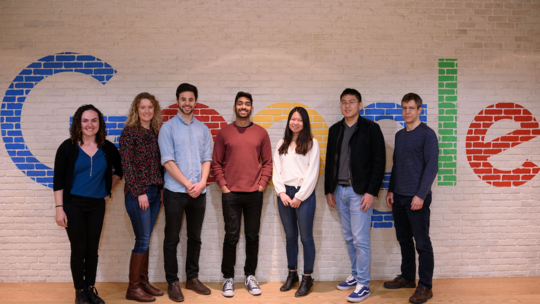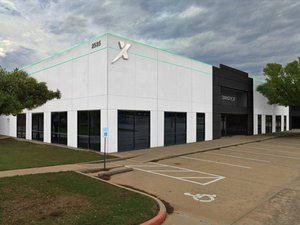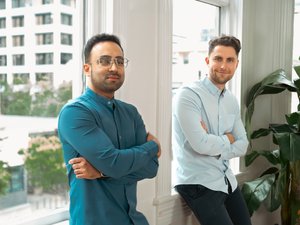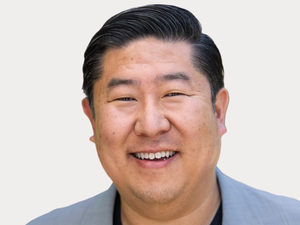
What do one of the nation’s leading technology companies and a premier nonprofit that provides job training and employment placement services have in common? A mission to help Americans learn the digital skills they need to advance their careers.
As part of its launch of Grow with Google, a cross-company effort, Google.org, the company’s charitable arm, supported the creation of the Goodwill Digital Career Accelerator program, which aims to jump-start the careers of 1.2 million people by 2021.
With support from Google’s tools, resources and talent, the GDCA ensures Goodwill responds effectively to the digital economy. The initiative is made possible by a $10 million Google.org grant, the volunteer efforts of 1,000 Google employees and access to the IT Support Professional Certificate, a groundbreaking online program that teaches people skills needed for a career in information technology.
“Google.org, through the Grow with Google initiative, does a lot of work to support digital career readiness so it was really our shared passion to helping equip people with these skills (that resulted in this partnership),” said Chelsea Seabron, manager of Google.org.
Communications Manager Peter Schottenfels said the Grow with Google Initiative provides economic opportunity for all Americans by bringing in employees from different parts of the company to help people all over the country gain the skills they need to compete in today’s workforce.
“It was an amazing experience to be exposed first-hand to the work that’s going on."
Digital skills are broken into five different levels, including digital skills awareness, basic digital skills, productivity skills, entry-level skills and mid-level and occupation-specific skills. Trainings are based on a location’s needs and can range from teaching participants to send emails and complete basic online research to pursuing professional certifications.
“Each local Goodwill creates the program offerings to best meet the needs of the population,” Seabron said. “For example, the Austin Goodwill team is thinking across all levels to meet the needs of the residents of Austin.”
Austin is one of 10 cities that took part in a month-long Google.org volunteer fellowship where participating Google employees spent a month on-the-ground helping Goodwill employees solve a problem or challenge with real potential for human impact.
In Austin, for example, the fellowship entailed analyzing data to determine how effectively the local Goodwill is serving its customers. More specifically, this could mean determining how many female veterans Goodwill helped in one year and figuring out what the specific needs of this customer demographic is. Then Goodwill employees can find out if customers’ needs are being met and act accordingly.
In 2017, Google and Goodwill’s efforts resulted in 27,000 people finding jobs, 252,000 having access to digital awareness training and GDCA program implementation at 93 Goodwill organizations across 34 states.
The fellows who participated in the Google.org fellowship in Austin include business analyst Amy Crocker and software engineers Joel Jacobs and Roshan Agrawal.
Crocker took part in the fellowship seeking a way to make an impact beyond Google.org where she had spent six years working.
“What I got out of it was getting to see how my technical skills can be applied to adjust to real world problems,” Crocker said. “In Austin, they wanted to see what sort of people they were reaching and what kind of grants (Goodwill) could be eligible to apply for if they could know how the demographics of the people they are serving lines up with the population of Austin.”
The program digitized data by gender, race, veteran status and virtually any category desired.
Agrawal used the fellowship as an opportunity to make a difference in the nonprofit sector as well as to travel outside of San Francisco. In addition to offering his own technical skills, he learned how tech teams outside of Google use Google’s data and data pipelining.
“It was really us going and helping them design a way to automate these pipelines,” he said.
Jacobs journeyed to Austin from New York City and was enthusiastic about applying technical skills to social issues in a volunteer position.
“It was exciting to just have a few months to focus on one impact-based project,” he said. “It was an amazing experience to be exposed first-hand to the work that’s going on. Sometimes technical work can be a little separated from the impact of it. You can do the work remotely but when you go on-site, you start talking to people helping people find job opportunities.”
That environment proved stimulating and fulfilling for the Google employees.
“It was helpful for us to be there to give them that initial push and allow them to take it from there,” Jacobs said.
They said they felt welcomed in Austin and honored to help promote the work that Goodwill does beyond its storefronts.
“We have a Google office that is within 15 minutes of the Goodwill in Central Texas,” Seabron said. “We’ll continue to grow (our efforts). There’s a great synergy to help people, our neighbors, gain digital skills. Our neighbors are what we consider Goodwill clients to be.”








